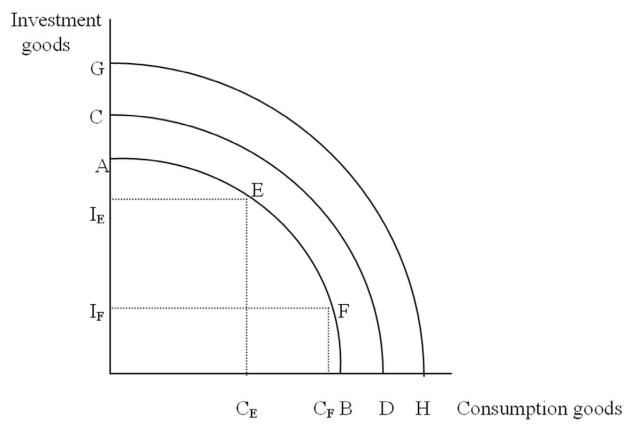Exam 15: Social Security and Medicare: How Secure Is Our Safety Net for the Elderly
Exam 1: Alleviating Human Misery: The Role of Economic Reasoning124 Questions
Exam 2: Economic Systems, Resource Allocation, and Social Well-Being: Lessons From Chinas Transition122 Questions
Exam 3: Government Control of Prices in Mixed Systems: Who Are the Winners and Losers123 Questions
Exam 4: Pollution Problems: Must We Foul Our Own Nests128 Questions
Exam 5: Economics of Crime and Its Prevention: How Much Is Too Much126 Questions
Exam 6: The Economics of Education: Crisis and Reform122 Questions
Exam 7: Poverty Problems and Discrimination: Why Are so Many Still so Poor121 Questions
Exam 8: The Economics of Monopoly Power: Can Markets Be Controlled129 Questions
Exam 9: The Economics of Professional Sports: What Is the Real Score120 Questions
Exam 10: Competition in the Global Market-Place: Should We Protect Ourselves From International Trade131 Questions
Exam 11: Economic Growth: Why Is the Economic Road so Bumpy138 Questions
Exam 12: Money,Banking and the Financial System: Old Problems With New Twists130 Questions
Exam 13: Unemployment and Inflation: Can We Find a Balance119 Questions
Exam 14: Government Spending,Taxation,and the National Debt: Who Wins and Who Loses125 Questions
Exam 15: Social Security and Medicare: How Secure Is Our Safety Net for the Elderly124 Questions
Select questions type
Medicare's fee-for-service plan provides incentives for supplying excessive services.
(True/False)
4.9/5  (37)
(37)
The most significant argument against privatizing Social Security is that
(Multiple Choice)
4.7/5  (33)
(33)
Health care providers are paid the amount of a patient's deductible by the health insurance company.
(True/False)
4.8/5  (37)
(37)
The Following Questions Refer to the graph below.  -The results of the bequest effect are illustrated on the graph as a movement from point
-The results of the bequest effect are illustrated on the graph as a movement from point
(Multiple Choice)
4.9/5  (33)
(33)
Both Social Security and Medicare are social insurance programs.
(True/False)
4.9/5  (39)
(39)
Government programs that guarantee citizens financial benefits for events beyond their personal control and that are financed through tax revenues are called
(Multiple Choice)
4.8/5  (41)
(41)
Third-party payments for health care decrease the price consumers pay for services.
(True/False)
4.8/5  (41)
(41)
About 50% of all elderly households receive some form of Social Security benefits.
(True/False)
4.9/5  (33)
(33)
Social Security benefits are adjusted each year for inflation using the Consumer Price Index (CPI).
(True/False)
4.8/5  (39)
(39)
A dominant feature of the U.S.health care industry is price competition among providers.
(True/False)
4.9/5  (40)
(40)
If I put extra into a savings account so that I can leave assets to my children to compensate them for their payments into the Social Security system,I am exhibiting which of the following effects?
(Multiple Choice)
4.9/5  (42)
(42)
Currently,the total combined tax rate collected by Social Security is
(Multiple Choice)
4.8/5  (41)
(41)
The amount a patient must pay above the deductible is known as co-insurancE.
(True/False)
4.8/5  (40)
(40)
The substitution effect of Social Security taxes causes some people to work more hours.
(True/False)
4.9/5  (34)
(34)
The empirical evidence suggests that,overall; Social Security causes people to increase their personal savings.
(True/False)
4.7/5  (39)
(39)
Current projections estimate that the Social Security Trust Fund will be completely depleted
(Multiple Choice)
4.9/5  (37)
(37)
Programs that provide citizens with benefits for events that are beyond an individual person's control are called social insurance programs .
(True/False)
4.9/5  (38)
(38)
Which of the following is an example of a managed health plan?
(Multiple Choice)
4.7/5  (44)
(44)
Which of the following statements is true concerning the scope of the Social Security program?
(Multiple Choice)
4.8/5  (32)
(32)
Showing 21 - 40 of 124
Filters
- Essay(0)
- Multiple Choice(0)
- Short Answer(0)
- True False(0)
- Matching(0)